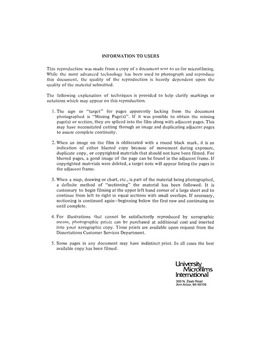| dc.contributor.author | Rutledge, Paul, | en_US |
| dc.date.accessioned | 2013-08-16T12:28:36Z | |
| dc.date.available | 2013-08-16T12:28:36Z | |
| dc.date.issued | 1982 | en_US |
| dc.identifier.uri | https://hdl.handle.net/11244/5011 | |
| dc.description.abstract | This study was concerned with the processes of adaptation exhibited and undertaken by the almost 12,000 Vietnamese people in Oklahoma City. Specifically, it seeks to examine the employment of religion, primarily Buddhism and Catholicism, and the role or roles it plays in the resettlement process. From this examination a model of ethnicity has emerged among the dynamics of cultural contact as the best manner in which to understand the adaptive process. | en_US |
| dc.description.abstract | With the unification of North and South Vietnam in 1975, one of the largest mass movements of people in modern history began. Many Vietnamese who had supported the United States presence in their homeland fled the approaching army from the north. Many of the refugee people chose to enter the United States and since the initial period of entry more than 650,000 Southeast Asian refugees have arrived in America. | en_US |
| dc.description.abstract | Data was gathered via personal interviews, participant observation, and archival research. More than 213 informal interviews were conducted. | en_US |
| dc.format.extent | viii, 146 leaves : | en_US |
| dc.subject | Anthropology, Cultural. | en_US |
| dc.title | The role of religion in ethnic self-identity : | en_US |
| dc.type | Thesis | en_US |
| dc.thesis.degree | Ph.D. | en_US |
| dc.thesis.degreeDiscipline | Department of Anthropology | en_US |
| dc.note | Source: Dissertation Abstracts International, Volume: 43-05, Section: A, page: 1603. | en_US |
| ou.identifier | (UMI)AAI8224204 | en_US |
| ou.group | College of Arts and Sciences::Department of Anthropology | |
